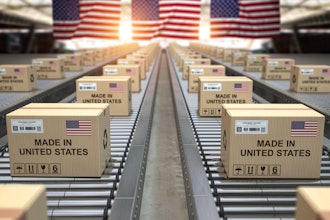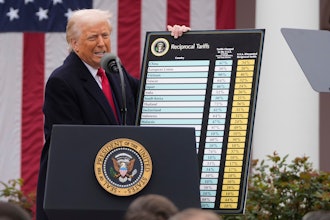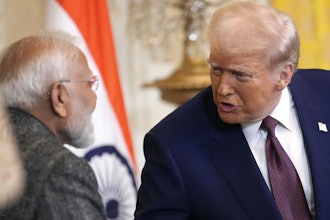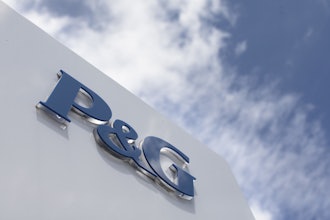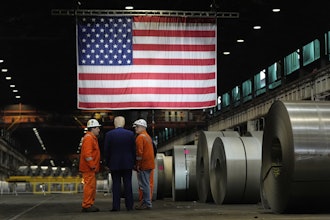A former managing director of a Chinese company appeared in federal court Thursday on charges that she secretly exported hundreds of gallons of paint coatings to a nuclear power plant in Pakistan.
Prosecutors say Xun Wang, who pleaded not guilty and was ordered held, exported the high-performance coatings to the Chasma II plant without obtaining the required license from the U.S. Department of Commerce.
Wang at the time was managing director of PPG Paints Trading, which in December pleaded guilty to exporting high-performance coatings to the same nuclear reactor and agreed to pay $3.75 million. The company is a foreign subsidiary of Pittsburgh-based PPG Industries, Inc.
The Commerce Department in June 2006 denied PPG Industries' request for a license to export the coatings. After the decision, the indictment alleges, Wang and other PPG Paints Trading representatives arranged to export the coatings to the Pakistani reactor through a third-party company in China. The purchase orders falsely identified a Chinese nuclear power station as the end user for the shipments, prosecutors say.
She was arrested in Georgia last month and appeared Thursday in U.S. District Court in Washington, where she faces charges including conspiracy and illegal exporting. She was ordered held, pending a detention hearing on Tuesday.
One of her attorneys, Bruce Baird, had no immediate comment after the arraignment.
Wang's arraignment comes at a time when the U.S. and Pakistan are trying to overcome deep mutual distrust in their joint fight against militant extremists. And it marked at least the second time four months that the U.S. has charged someone with smuggling restricted technology to Pakistan's nuclear program.
"It does highlight the growing problem of China and Chinese companies as a vehicle for countries like Iran and Pakistan to outfit their nuclear programs," said Paul Brannan of the Institute for Science and International Security.
China is helping Pakistan build the Chashma plant. While the facility is designed for power production, there is concern that spent fuel from the plant could be reprocessed to produce plutonium and uranium that can be used in nuclear weapons.
The U.S. announced in March that it was charging a Pakistani man living in Maryland with illegally buying sensitive technology for his country's nuclear program. The indictment charged Nadeem Akhtar, 45, of Silver Spring with buying radiation detection devices, resins for coolant water purification and calibration devices for the Chashma nuclear power project and perhaps other, weapons-related facilities.
Pakistan is thought to have between 70 and 120 warheads and is in the process of accelerating production.
United States officials have repeatedly expressed confidence in the security of Pakistan's arsenal and Washington has spent millions helping Pakistan protect its weapons
But a recent report by the Federation of American Scientists warned that the risk of Pakistani militants getting their hands on a nuclear weapon or the materials needed to build a bomb is rising.






